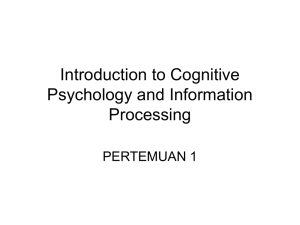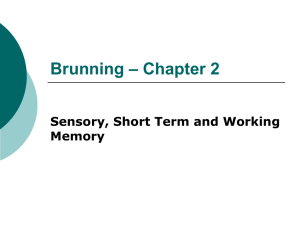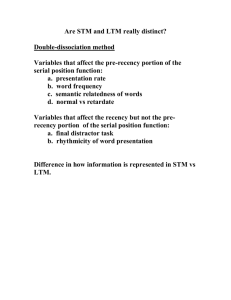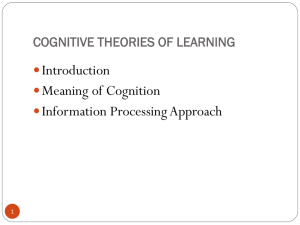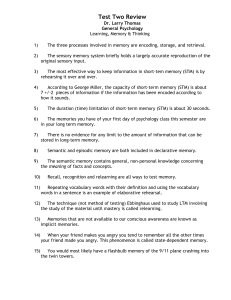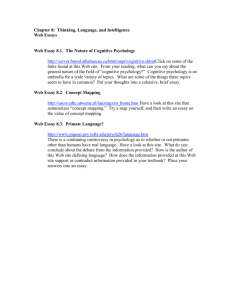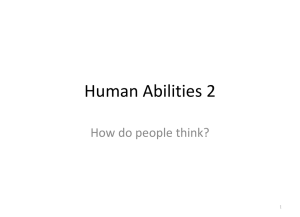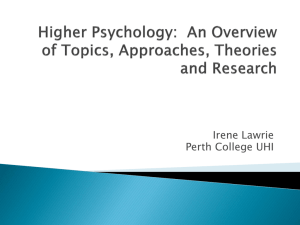Educational Psychology Essay assignment Ch1
advertisement
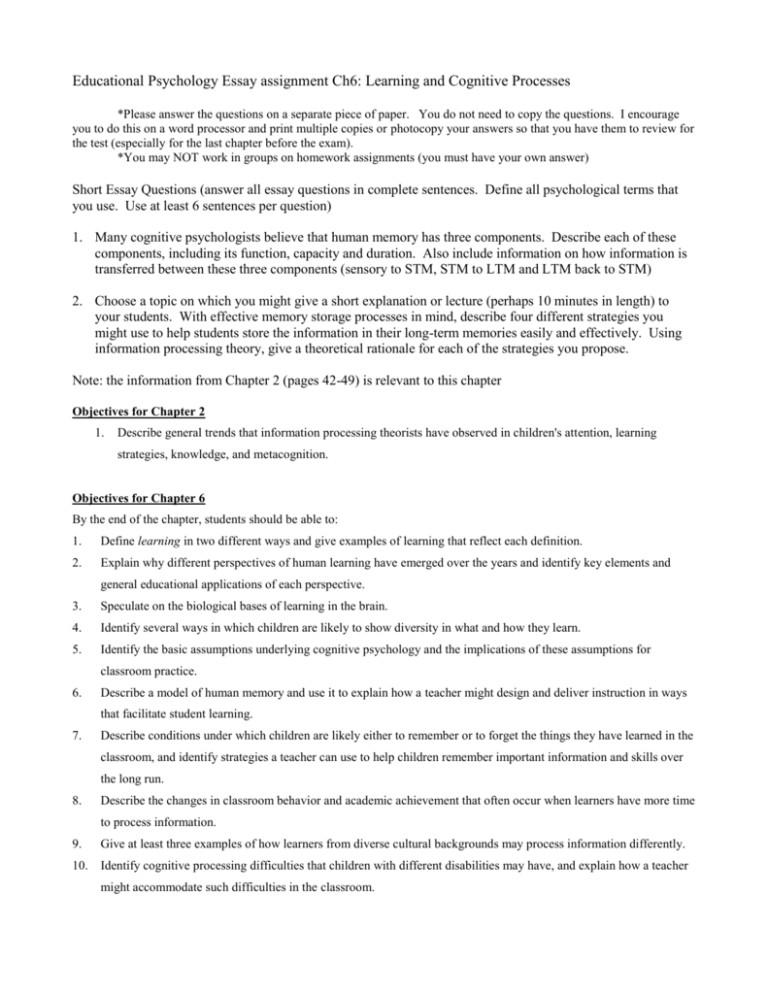
Educational Psychology Essay assignment Ch6: Learning and Cognitive Processes *Please answer the questions on a separate piece of paper. You do not need to copy the questions. I encourage you to do this on a word processor and print multiple copies or photocopy your answers so that you have them to review for the test (especially for the last chapter before the exam). *You may NOT work in groups on homework assignments (you must have your own answer) Short Essay Questions (answer all essay questions in complete sentences. Define all psychological terms that you use. Use at least 6 sentences per question) 1. Many cognitive psychologists believe that human memory has three components. Describe each of these components, including its function, capacity and duration. Also include information on how information is transferred between these three components (sensory to STM, STM to LTM and LTM back to STM) 2. Choose a topic on which you might give a short explanation or lecture (perhaps 10 minutes in length) to your students. With effective memory storage processes in mind, describe four different strategies you might use to help students store the information in their long-term memories easily and effectively. Using information processing theory, give a theoretical rationale for each of the strategies you propose. Note: the information from Chapter 2 (pages 42-49) is relevant to this chapter Objectives for Chapter 2 1. Describe general trends that information processing theorists have observed in children's attention, learning strategies, knowledge, and metacognition. Objectives for Chapter 6 By the end of the chapter, students should be able to: 1. Define learning in two different ways and give examples of learning that reflect each definition. 2. Explain why different perspectives of human learning have emerged over the years and identify key elements and general educational applications of each perspective. 3. Speculate on the biological bases of learning in the brain. 4. Identify several ways in which children are likely to show diversity in what and how they learn. 5. Identify the basic assumptions underlying cognitive psychology and the implications of these assumptions for classroom practice. 6. Describe a model of human memory and use it to explain how a teacher might design and deliver instruction in ways that facilitate student learning. 7. Describe conditions under which children are likely either to remember or to forget the things they have learned in the classroom, and identify strategies a teacher can use to help children remember important information and skills over the long run. 8. Describe the changes in classroom behavior and academic achievement that often occur when learners have more time to process information. 9. Give at least three examples of how learners from diverse cultural backgrounds may process information differently. 10. Identify cognitive processing difficulties that children with different disabilities may have, and explain how a teacher might accommodate such difficulties in the classroom. Vocabulary: learning, response, stimulus, behaviorism, social cognitive theory, cognitive psychology, synapse, neuron, information processing theory, constructivism, memory, encoding, storage, retrieval, sensory register, STM/WM, LTM, maintenance rehearsal, elaboration, activation, declarative, procedural, implicit, explicit, episodic*, semantic*, automaticity, mnemonics, encoding failure*, reconstruction error, interference, decay
